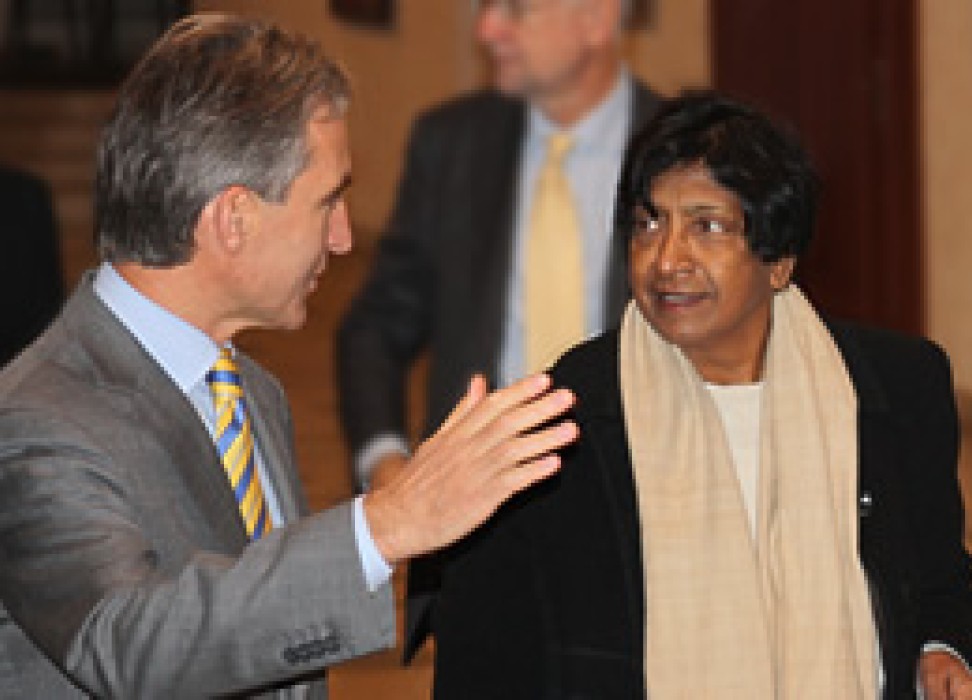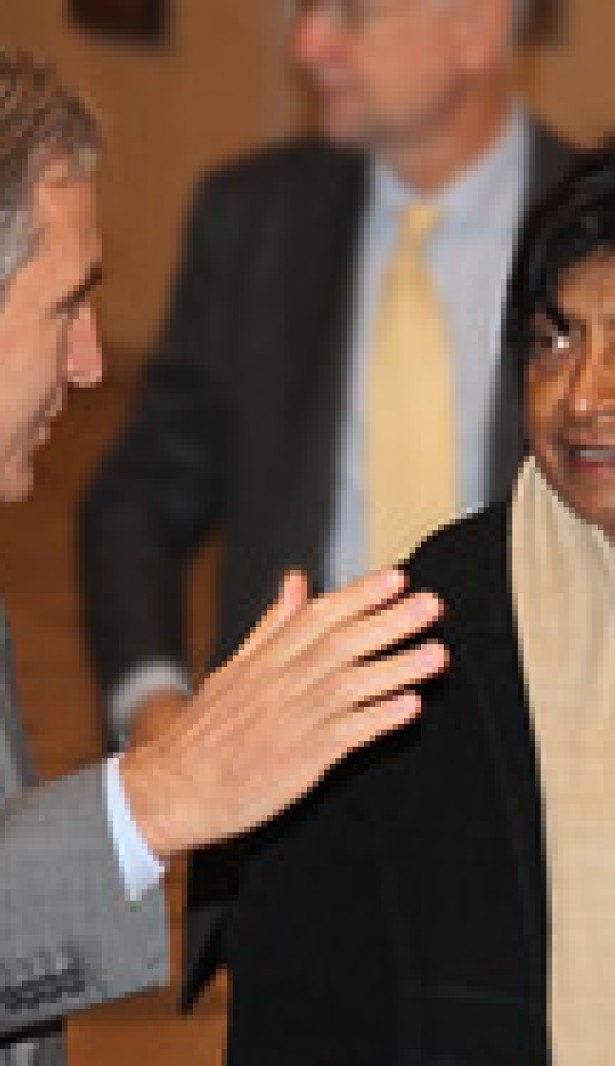Focus on strengthening democratic institutions in Moldova
08 November 2011

In a first visit to the Republic of Moldova, the UN Human Rights Chief Navi Pillay met with various government authorities and raised a myriad of human rights issues, including torture and trafficking of human beings.
Pillay also travelled to the Transnistrian region, the first time a High Commissioner for Human Rights has been to a contested frozen conflict territory not under the effective control of the state authorities.
Pillay’s trip followed immediately in the wake of Moldova’s first Universal Periodic Review (UPR), which took place on October 12. Addressing the press at the end of her four-day visit to the Eastern European country, Pillay said: “One important priority for Moldova is to take decisive action in implementing all of the UPR recommendations.” She encouraged the establishment of a high-level mechanism to implement the UPR recommendations.
While the High Commissioner was in Moldova the Parliament discussed at first reading a comprehensive justice sector reform strategy. “I welcome the justice sector reform strategy which cleared first reading by Parliament yesterday. I am firmly persuaded that an improved, fully independent judiciary is key to the protection and promotion of human rights in all areas,” Pillay said.
Earlier in the week, Pillay visited a psychiatric institution situated in the outskirts of the capital Chisinau, many of whose patients have been at the facility for as long as two years. She expressed concern at the prolonged commitment of patients and relayed the bitter complaints by one of the patients who said: “The system is very good at locking people up, but getting out again is very difficult.”
“I was particularly struck by the very limited extent to which forcibly interned patients have access to processes that could lead to their release,”Pillay said. She emphasized the need to integrate persons with disabilities and called for comprehensive reforms to ensure equality and dignity for people suffering from mental and intellectual disabilities.
A joint UN Human Rights and UNICEF report titled, “Forgotten Europeans Forgotten Rights”, calls on governments to shift from a system of institutional care to alternative community-based services which enable children, persons with disabilities, including users of mental health services and older people to live and participate in the community.
Pillay also urged the Moldovan authorities to combat discrimination by urgently enacting comprehensive laws banning discrimination on all grounds. She singled out the rights of ethnic, religious and linguistic minorities, and expressed concern about hostility facing the lesbian, gay, bisexual and transgendered community. She detailed concerns about threats to Roma, persons of African descent, Jews, Muslims and Jehovah’s Witnesses.
“My message to the Government and to the public is that diversity is among our highest values. A democracy is only as strong as its ability to protect its most vulnerable,” Pillay said.
During her visit to the Transnistrian region, where she visited a penitentiary, Pillay raised concerns over violations of minimum international standards relating to conditions in places of detention.
There, she met with a person who had been tortured while in custody. She urged the relevant authorities to release him and other detainees, including a man currently serving a prison sentence for conscientious objection to military service.
She welcomed statements by the relevant authorities to the effect that they will consider making available alternative service for conscientious objectors.
“More attention needs to be paid to the situation of human rights in areas which, for various reasons, are controlled by de facto authorities. My mandate is about protection of all human rights for all,” said the Human Rights chief. She pointed out that her office’s work with the relevant authorities on human rights issues does not amount to their legitimization.
She noted that trafficking particularly of women and girls, remains a major concern in Moldova. On Wednesday 2 November, she launched the Human Rights office Commentary on Guiding Principles on Human Trafficking.
“Impunity is an issue I raised in connection with torture. Torture is a serious crime and cannot be tolerated in any circumstances. Any State official who carries out torture must be prosecuted and brought to justice,” said Pillay.
8 November 2011

VIEW THIS PAGE IN:
